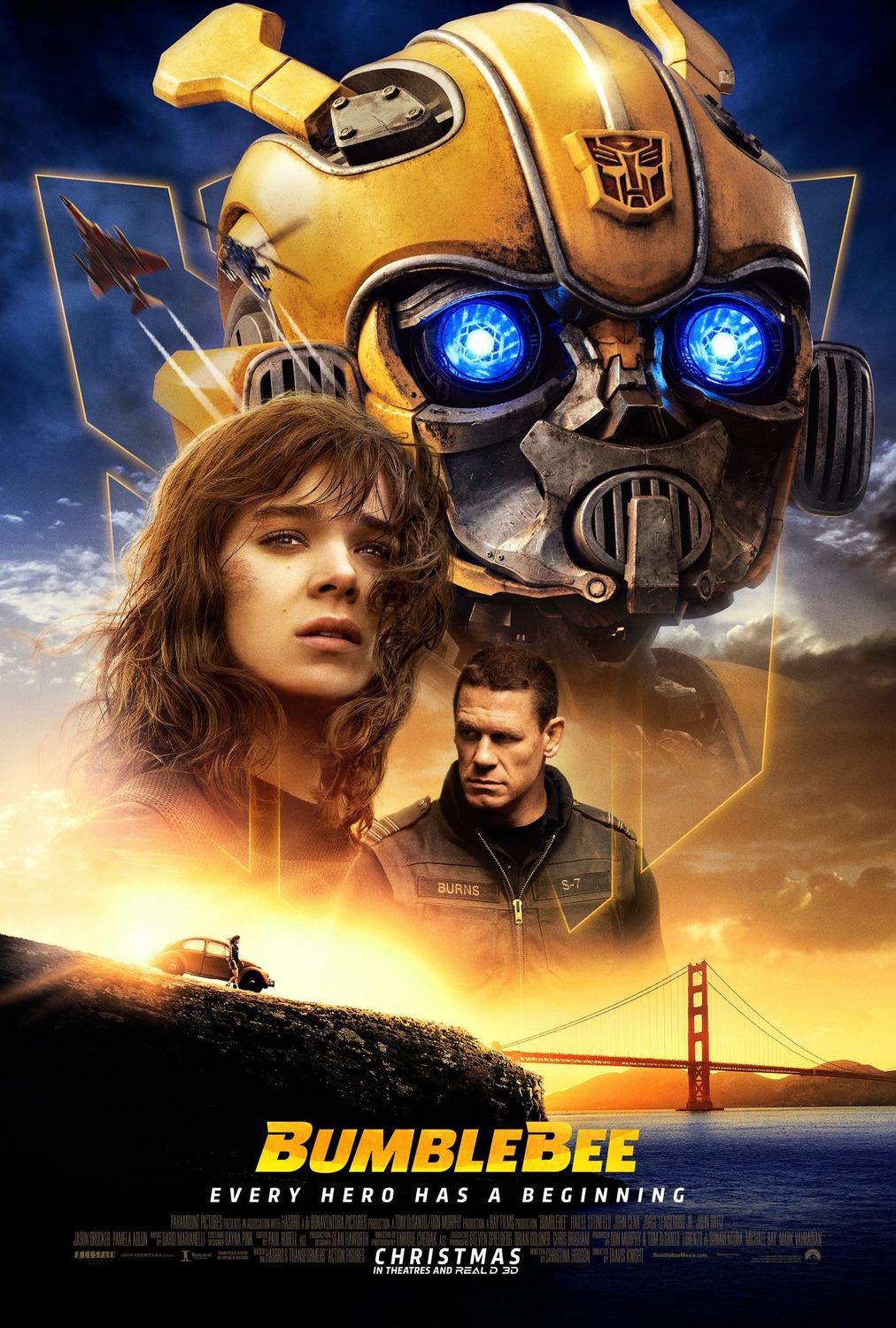In the past, I’ve praised Michael Bay’s Transformers franchise for adeptly accomplishing its (admittedly low-bar) mission of providing mindless, stylistic, summer popcorn movie fun. The five films, dating back to 2007, may not have been great when compared to anything of substance, but heck… in and of themselves, they work.
And then Bumblebee comes along, and it’s readily apparent that there’s actually a way to make a Transformers movie that does have substance and is empiricallygood. Director Travis Knight (Kubo and the Two Stings), helming his first live-action film and working from a script by Christina Hodson, has made something that frankly comes out of nowhere to be a genuinely great film.
Is it a coincidence that the first great Transformers film is also the first to have a female scripter and a female lead? Probably not.
The year is 1987 (Bumblebee serves as an origin story/prequel), and Hailee Steinfeld’s Charlie is a loner teen who loves her music (The Smiths), hates her job (Hot Dog on a Stick), and endures her family. She’s also a gearhead, spending all her free time hanging out at the local junkyard, rummaging for spare parts. It’s there that she trips on an old yellow Beetle, unaware that it’s a transforming robot who’s scouting out a safe haven for the Autobots as they continue their war with the Decepticons. When Charlie gets the Beetle back to her house, she quickly discovers that the car is more than meets the eye, and Bumblebee is off and running.
Complicating things is the arrival of Decepticons Shatter (Angela Bassett) and Dropkick (Justin Theroux), who tracked Bumblebee to Earth and are now hunting him down to discover the location of the new Autobots base. They cleverly worm their way into the good graces of the folks at Sector 7 (including John Cena’s Agent Jack Burns) and convince them that Bumblebee is the enemy.
Of course, car chases, shootouts, and other testosterone-fueled mayhem ensue, but Knight also gives the film ample time to breathe—a word I’m not convinced is even in Michael Bay’s vocabulary. Steinfeld, who was flat-out brilliant in 2016’s Edge of Seventeen (along with the Coen Brothers’ True Grit and the last two Pitch Perfects), carries Bumblebee with grace and warmth, immediately pulling us not only into her world but into the world of her new best friend. How we end up feeling emotionally attached to a hulking, rusty pile of metal is beyond me, but we do.
Hodson’s script, which pulls heavily on ’80s nostalgia and the occasional high school trope, is a refreshing entry into the Transformers pantheon. We get real emotion, real characters, and even some laugh-out-loud real comedy. And as fun as it was to exit the theater after the other Transformers movies amped up and having to pause for a second as your hearing returned and your eyes refocused, it’s even better to relish the fact that you’ve just enjoyed a really, really well-done movie. And that’s what Bumblebee is.
Rating
4.5/5 stars
